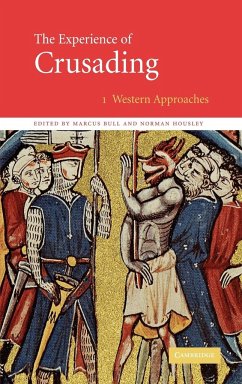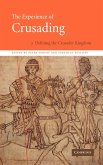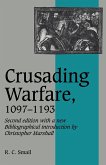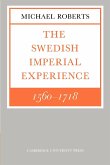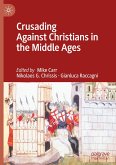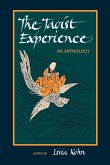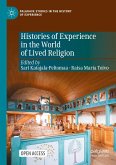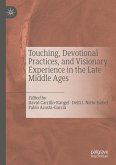A collection of essays focusing on the theory and practice of crusading.
The study of the crusades is one of the most thriving areas of medieval history. This collection of seventeen essays by leading researchers in the field reflects the best of contemporary scholarship. The subjects handled are remarkably wide-ranging, focusing on the theory and practice of crusading and the contributions which were made by the military orders. Chronologically, the essays range from the church's approach towards warfare in the pre-crusade era, to the way in which the First Crusade has been depicted in post-war fiction. Together with its companion volume, The Experience of Crusading: Volume 2. Defining the Crusader Kingdom, edited by Peter Edbury and Jonathan Phillips, this collection has been published to celebrate the 65th birthday of Jonathan Riley-Smith, the leading British historian of the crusades. The volume includes an appreciation of his work on the crusades and on the military orders.
Table of content:
Jonathan Riley-Smith, the crusades and the military orders: an appreciation Norman Housley and Marcus Bull; Part I. The Crusades and Crusading: 1. Views of Muslims and of Jerusalem in miracle stories, c. 1000-c. 1200: reflections on the study of first crusaders' motivations Marcus Bull; 2. A further note on the conquest of Lisbon in 1147 Giles Constable; 3. Costing the crusade: budgeting for crusading activity in the fourteenth century Norman Housley; 4. The crusading motivation of the Italian city republics in the Latin East, c. 1096-1104 Christopher Marshall; 5. Odo of Deuil's De profectione Ludovici VII in orientem as a source for the second crusade Jonathan Phillips; 6. Innocent III and Alexius III: a crusade plan that failed James M. Powell; 7. The Venetian fleet for the fourth crusade and the diversion of the crusade to Constantinople John H. Pryor; Part II. The Catholic Church and the Crusade: 8. The conquest of Jerusalem: Joachim of Fiore and the Jews Anna Sapir Abulafia; 9. Crusades, clerics, and violence: reflections on a canonical theme James A. Brundage; 10. Humbert of Romans and the crusade Penny J. Cole; 11. Christianity and the morality of warfare during the first century of crusading H. E. J. Cowdrey; 12. Holy war and holy men: Erdmann and the lives of the saints John France; 13. The Bible moralisée and the crusades Christoph T. Maier; 14. The hospitallers in twelfth-century Constantinople Anthony Luttrell; 15. Serving king and crusade: the military orders in royal service in Ireland, 1220-1400 Helen Nicholson; Part III. Retrospective: 16. The first crusade in post-war fiction Susan Edgington; 17. Nineteenth-century perspectives of the first crusade Elizabeth Siberry.
Hinweis: Dieser Artikel kann nur an eine deutsche Lieferadresse ausgeliefert werden.
The study of the crusades is one of the most thriving areas of medieval history. This collection of seventeen essays by leading researchers in the field reflects the best of contemporary scholarship. The subjects handled are remarkably wide-ranging, focusing on the theory and practice of crusading and the contributions which were made by the military orders. Chronologically, the essays range from the church's approach towards warfare in the pre-crusade era, to the way in which the First Crusade has been depicted in post-war fiction. Together with its companion volume, The Experience of Crusading: Volume 2. Defining the Crusader Kingdom, edited by Peter Edbury and Jonathan Phillips, this collection has been published to celebrate the 65th birthday of Jonathan Riley-Smith, the leading British historian of the crusades. The volume includes an appreciation of his work on the crusades and on the military orders.
Table of content:
Jonathan Riley-Smith, the crusades and the military orders: an appreciation Norman Housley and Marcus Bull; Part I. The Crusades and Crusading: 1. Views of Muslims and of Jerusalem in miracle stories, c. 1000-c. 1200: reflections on the study of first crusaders' motivations Marcus Bull; 2. A further note on the conquest of Lisbon in 1147 Giles Constable; 3. Costing the crusade: budgeting for crusading activity in the fourteenth century Norman Housley; 4. The crusading motivation of the Italian city republics in the Latin East, c. 1096-1104 Christopher Marshall; 5. Odo of Deuil's De profectione Ludovici VII in orientem as a source for the second crusade Jonathan Phillips; 6. Innocent III and Alexius III: a crusade plan that failed James M. Powell; 7. The Venetian fleet for the fourth crusade and the diversion of the crusade to Constantinople John H. Pryor; Part II. The Catholic Church and the Crusade: 8. The conquest of Jerusalem: Joachim of Fiore and the Jews Anna Sapir Abulafia; 9. Crusades, clerics, and violence: reflections on a canonical theme James A. Brundage; 10. Humbert of Romans and the crusade Penny J. Cole; 11. Christianity and the morality of warfare during the first century of crusading H. E. J. Cowdrey; 12. Holy war and holy men: Erdmann and the lives of the saints John France; 13. The Bible moralisée and the crusades Christoph T. Maier; 14. The hospitallers in twelfth-century Constantinople Anthony Luttrell; 15. Serving king and crusade: the military orders in royal service in Ireland, 1220-1400 Helen Nicholson; Part III. Retrospective: 16. The first crusade in post-war fiction Susan Edgington; 17. Nineteenth-century perspectives of the first crusade Elizabeth Siberry.
Hinweis: Dieser Artikel kann nur an eine deutsche Lieferadresse ausgeliefert werden.

